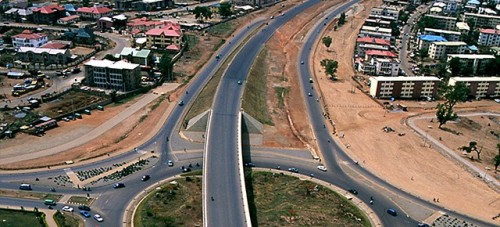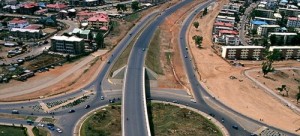The China Civil Engineering Construction Corporation (CCECC) on Tuesday laid a foundation stone for the building of Lots 1A and 3 stations in the major light rail project in Nigeria, amid pomp and ceremony.
The construction of Lots 1A and 3 stations for the light rail project, which partially suffered a setback due to paucity of funds, is conservatively at 27% completion after a $500 million soft loan was signed by the Nigerian government and the China EXIM Bank in 2012 to put it on a fast track.
Speaking at the groundbreaking ceremony in Abuja, Nigerian Minister of the Federal Capital Territory, Bala Mohammed said since the signing, the light rail project has been running smoothly and as expected.
He expressed optimism that, when completed and subsequent operation begins, the Abuja rail system would mark a positive turning point in the transportation network, particularly in the capital city.
“We are optimistic the deadline of 2015 set for the realization of the project is attainable,” said the minister, adding more than 2,000 Nigerians are employed for the construction by the CCECC.
He emphasized, among other expectations, that the rail system would cause a drop in congestion and enhance the movement of people and goods within the capital city when full operations begin in 2015.
According to the minister, a study made by experts in 2010 showed that more than 470,000 passengers would be conveyed on a daily basis when the project is completed. Another recent study has indicated that by 2015, the number of daily passengers on the train would increase to 700,000, he added.
On his own part, Managing Director of the CCECC in Nigeria Shi Hongbing said according to the company’s program, the light rail project may be completed earlier than 2015, if more funds are budgeted for it by the Nigerian government and Senate in 2014.
“CCECC, as an international contractor, will continue its efforts to construct the project in good quality and as fast as possible,” he said.
Designed to ease mainly the transportation burden of residents in Abuja, the government, in its efforts to provide alternative modes of transportation, signed a contract to construct the landmark light rail system with the Chinese firm in 2007.



